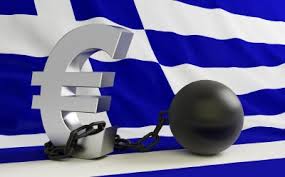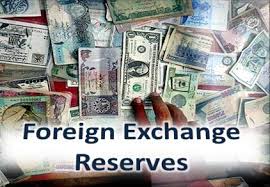Recent GREXIT(Greece Exit) issue and economic terms like austerity measures, Eurozone, Greece Debt crisis may sound a little, well, Greek to many!
To cut things short, here’s a real short story about how everything eventually lead to miserable condition of Greece today.
The story starts way back in 2009, when everything wasn’t all right. Greece had national Debt-its expenditure was way more than its revenue: so much that it had to borrow money! Banks charged higher interest rates which led to further debt. This was before Greece joined the Eurozone (monetary union of 19 of the 28 European Union(EU) member states which have adopted euro as common currency), it could print its own money earlier which helped it manage National Debt.
Debt was increasing because pension schemes for retirees and benefits for unemployed cost money without generating any revenues in return; Greece had to pay price for its generosity.
Greece then joined Eurozone, adopted euro as its currency. As a condition of Eurozone, Greece had to control its expenditure (it was growing beyond control).It badly failed in doing so!
Gradually Greece needed more money, borrowed it incessantly.
Eurozone crisis came. It hit Greece hard. Also, businesses and Greek citizens were evading taxes (tax revenue accounted for half the country’s budget in year 2008-10). Revenue turned less and lesser.Without the expenditure not decreasing and revenue going down, it had to, somehow, borrow more money.
IMF(International Monetary Fund) and ECB(Europe Central bank) turned up for help but with some conditions for Greece
- raise taxes
- cut government spending (austerity measures)
What happened?
- Unemployment soared up to 50%
- Pensioners didn’t like the taking away of pension schemes
2015 Debt Crisis.Greece had to pay back the debt which was more than 300 billion Euros to IMF and EU. Unable to pay that debt, IMF and EU expressed their inability to negotiate further. Meanwhile for capital control, a limit of withdrawal of 60 Euros from ATMs was put to place.
Greece recently called a referendum; a whopping 61% unanimously voted against following austerity measures and wanted the government to repay the debt without any help from IMF or ECB.
Well for now, Greece received bailouts, meaning the 195 billion Euros debt has been cleared. But there’s still a major crisis.
DOES IT HAVE ANY EFFECT ON INDIA?
Fortunately, Not really!
India’s not directly exposed to Greece in terms of trade ties. There can be an outflow and inflow India due to increase in interest rates, but India can withstand any pressure from Greek crisis. Stalwarts are optimistic about the Greece situation.
TAKEWAY: DON’T SPEND MINDLESSLY MORE THAN WHAT YOU EARN!
Click here for government certification in Accounting, Banking & Finance





39 Comments. Leave new
Well written.
Thanks!
i loved the way you explained this hot news..taking most of the aspects into account
Tried so!
thanks a lot 🙂
Well written and informative
thanks!
Very well condensed.
thanks!
Very Well Written 😀
thanks anirudh!
Well explained.
thanks a lot
well written!
Thanks
Well explained!
Thanks
Good efforts
Thanks Ria
Very well written bro
Um,yeah!
Well written
Thanks Akansha!
well written article..
Thanks Sunaina!
nice 🙂
Thanks!
Well presented, short yet clear!
Thanks Ashu!
Nicely presented, crisp and clear.
Umm,thanks again 😛
Thanks for demystifying these terms for us!
Totally
Great article!
thanks aradhna!
thanks!
well explained
thanks Arun
A very informative article, got the clear picture of the Greek crises. Good Work!
however it is bound to effect India in the long run…